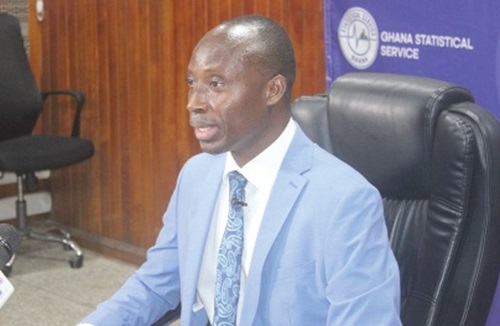Informal cross-border trade between Ghana and its three neighbouring countries — Togo, Burkina Faso, and Côte d’Ivoire — was valued at GH¢7.4 billion in the fourth quarter of 2024, according to new data from the Ghana Statistical Service (GSS). The amount represents 4.3 per cent of Ghana’s total trade for the period.
The findings, from the first national Informal Cross-Border Trade (ICBT) survey, shed light on economic activities that occur outside formal customs systems. The survey covered 321 active border points across ten regions between October and December 2024, using direct observation and interviews with traders.
Introducing the report, the Government Statistician, Dr. Alhassan Iddrisu, said the results would serve as a strong basis for policy decisions. “By measuring informal trade systematically, we are strengthening the foundation for better economic planning,” he stated.
He explained that informal trade is a vital part of daily life for many Ghanaians, and its measurement ensures that national economic policies capture the full spectrum of trade activity. “These results help ensure that national policies capture the full range of economic activity, not just what passes through formal systems. Informal trade is part of everyday life for many Ghanaians, and bringing it into view allows us to recognise its real value and contribution to livelihoods,” Dr. Iddrisu added.
The report revealed that Ghana recorded a trade surplus of GH¢576 million with Burkina Faso and GH¢378 million with Côte d’Ivoire but a trade deficit of GH¢539 million with Togo. Informal trade accounted for 61.2 per cent of total trade with Togo, 55.7 per cent with Côte d’Ivoire, and 37.1 per cent with Burkina Faso.
Alcoholic drinks worth GH¢187 million and soft drinks valued at GH¢170 million were among the leading informal exports, along with petrol and second-hand clothes. Informal imports were dominated by cooking oil worth GH¢270 million, mattresses valued at GH¢171 million, rice at GH¢143 million, and livestock at GH¢159 million. Food products represented 49.6 per cent of informal imports and 41 per cent of informal exports, underscoring their importance in regional food security.
Regionally, the Upper East Region emerged as Ghana’s main trade corridor, recording GH¢1.27 billion in informal exports — fifteen times higher than the Savannah Region’s GH¢82.9 million. Paga was identified as the most frequently used border post for informal imports.
Gender participation in the survey showed that 65.7 per cent of export transporters were men, while women accounted for 41.3 per cent of import transporters, particularly in the Savannah, Western, and Northern regions. Tricycles and motorbikes were the most common means of transport, reflecting the small-scale and frequent nature of informal trade.
The Ghana Statistical Service noted that while informal cross-border trade connects producers and consumers, supports food availability, and provides income for households, it also presents challenges. These include limited accuracy in trade measurement, reduced tax revenue, weak infrastructure, and restricted access to finance for traders.
To address these challenges, the GSS recommended measures such as simplifying trader registration, providing access to microcredit, and offering training in record-keeping and product quality standards. It also urged improvements in border infrastructure, enhanced regional cooperation, and increased domestic production of goods like cooking oil, rice, and mattresses to reduce import dependency.
The Service stressed that integrating informal trade data into national planning would help bridge the gap between formal and informal economies, leading to more inclusive policies and better regional trade integration under the African Continental Free Trade Area (AfCFTA).
